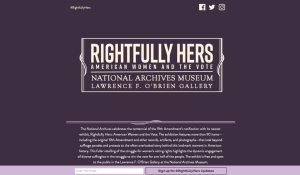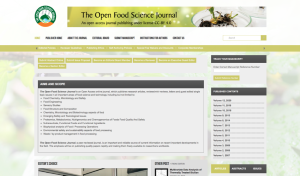Theme: U.S. Government and Legal History
Back to Top
|
 |
|
Civics 101
|
Social studies |
|
Branded as "the podcast refresher course on the basics of how our democracy works," Civics 101 distills important government topics, such as the separation of powers and the electoral college, for listeners of all ages. Since its launch in 2017, the award-winning podcast has released nearly 200 episodes. Traditional episodes are around 20 minutes long, while "Civics Shorts" ("bite-size" recaps of important topics designed for middle school students) are less than 10 minutes in length. These episodes are available on most popular listening platforms and at the link above. In addition to the podcast, the site offers instructors some great classroom tools, including lesson plans and quizzes, on the Educator Resources page. The Civics 101: NH page contains information about the off-shoot program of that name, a podcast focused on New Hampshire's state government. Looking for a topic not yet covered? Civics 101 welcomes questions via their Ask a Question page (found under the For Educators dropdown menu) or through their social media channels (@civics101pod on Twitter and Instagram). Hannah McCarthy and Nick Capodice host the show, which is produced by New Hampshire Public Radio with support from the Corporation for Public Broadcasting. [EMB] |
|





|
|
 |
|
 |
|
IndiVisible: African-Native American Lives in the Americas
|
Social studies |
|
Many recollections of United States government and history fail to paint an accurate and inclusive account of the complete "American identity." IndiVisible: African-Native American Lives in the Americas seeks to remedy this by highlighting "the lives and experiences of people who share African American and Native American ancestry." The exhibition showcases how "African-Native American people were united in the struggle against slavery and dispossession, and then for self-determination and freedom." After reading the Introduction section, readers can explore the four major themes: Policy, Community, Creative Resistance, and Lifeways. These sections explore many events in U.S. legal history, including the creation and amendment of tribal constitutions, colonialism's influence on legal systems, struggles over land rights, and self-governance and tribal regulations. The exhibition is a collaboration between several institutions, including the National Museum of the American Indian, National Museum of African American History and Culture, and the Smithsonian Institution Traveling Exhibition Service. [EMB] |
|





|
|
 |
|
The Evolution of the American Census
|
Social studies |
|
This year marks the 24th United States Census. The U.S. Census has important implications for our government and legal systems. For example, the data "determine[s] how many seats each state should have in Congress." Over time, the Census's questions have evolved. As The Evolution of the American Census notes, these changes "tell us a lot about the country's priorities, norms, and biases in each decade." Using data from the U.S. Census website and other primary and secondary sources, the project tracks the questions asked each decade (color-coding by question category to show broader shifts in Census priorities over time). Readers can also explore the project by theme (e.g., "Economy and Employment" or "Immigration and Citizenship") using the dropdown box near the top of the page. The left-hand panel of the screen briefly summarizes each Census year; meanwhile, the right-hand panel provides historical context, chronicling key dates and events (e.g., wars and legal decisions and amendments). Not only is the project interactive and informative, but it ends with a reflection, reminding users: "the democratic ideal of the census means that every ten years, we have the chance to carry out a better system to count every person in the United States." Developer Alec Barrett created this project at data visualization agency TWO-N, and it was published in The Pudding in March of 2020. [EMB] |
|





|
|
 |
|
Rightfully Hers
|
Social studies |
|
A century ago the United States ratified the 19th amendment, prohibiting voter discrimination based on sex. Rightfully Hers: American Women and the Vote, a project of the National Archives Foundation, commemorates the ratification. The exhibition features nearly 100 items, including political cartoons and postcards, petitions and legal documents, and pictures and quotes from women who shaped the movement. In doing so, it seeks to show the movement in a way "that look[s] beyond suffrage parades and protests to the often overlooked story behind this landmark moment in American history." While the physical exhibition is located at the Lawrence F. O'Brien Gallery at the National Archives Museum, many of its items are on digital display through this online portal. Select records are embedded at the link above, as well as links to related resources, including: "Road to Ratification" (a state-by-state exploration of the ratification process), external lesson plans, and a 19th amendment-themed youth art competition. The remainder of the records are accessible by clicking the "More Records" box (located below Featured Records). Here, users can select an online exhibition to view (primarily categorized into five questions such as "What was the 19th Amendment's Impact?" and "Why Did Women Fight for the Vote?"). Users will also find an introductory video from the exhibit's curator, Corinne Porter. A variety of sponsors supported the exhibition, including the National Archives Foundation and Unilever. [EMB] |
|





|
|



















